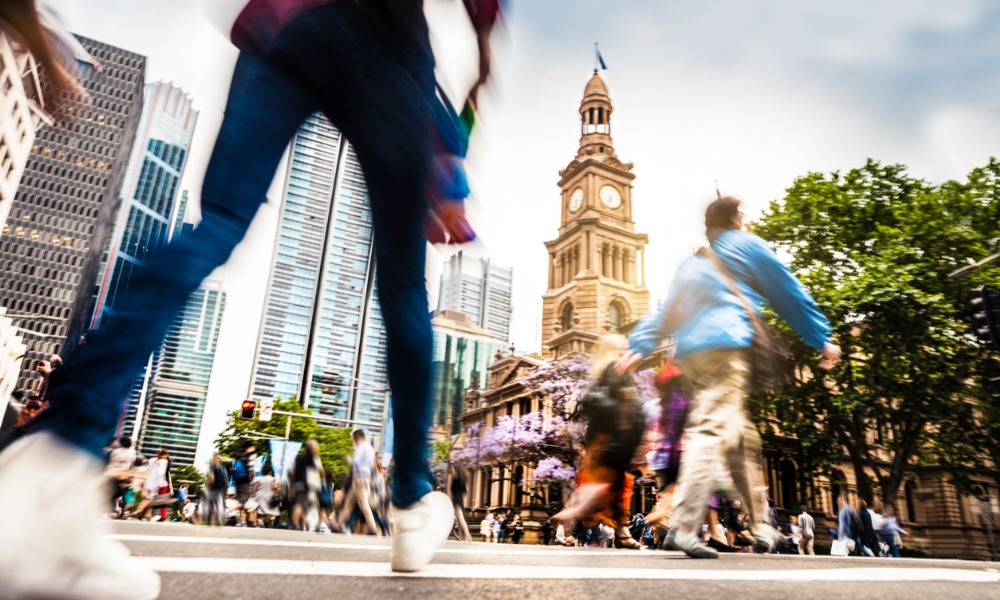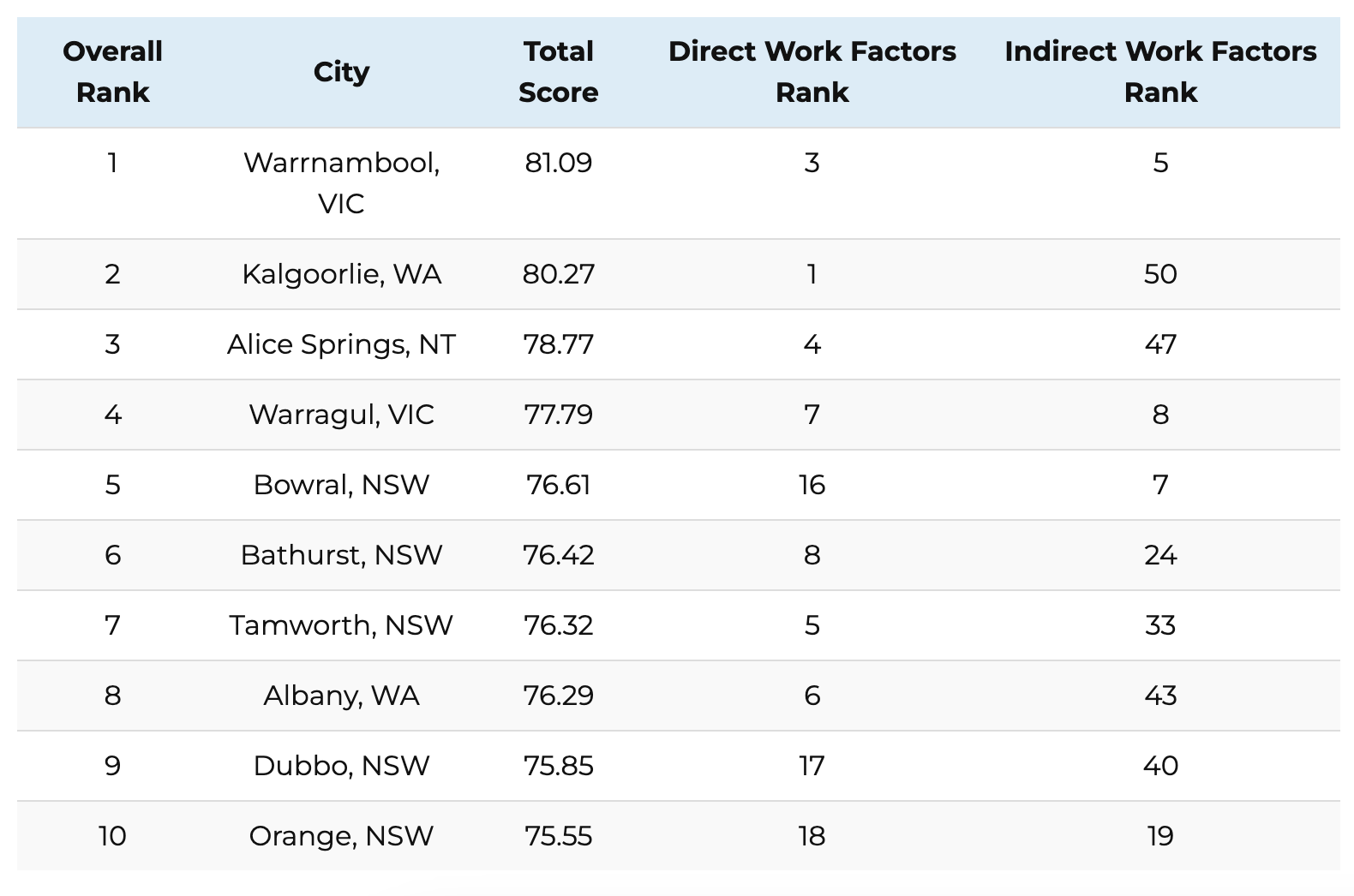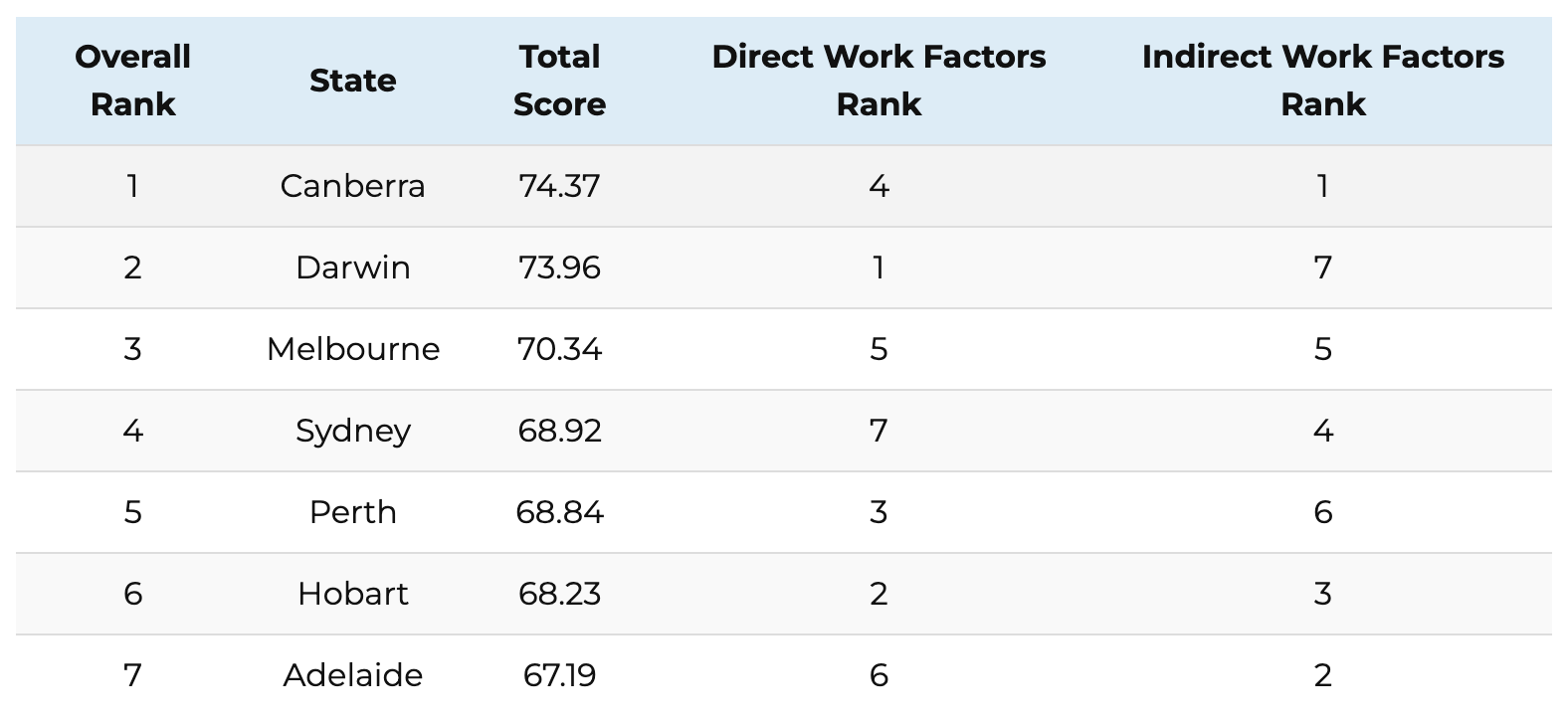
New list reveals cities with the strongest commitment to work

Warrnambool in Victoria has topped a ranking of Australia's hardest-working cities.
Based on 11 key metrics, Warrnambool scored 81.09, leading in factors such as employment rates and volunteering participation.
"Warrnambool, Australia's hardest-working city, stands out with the lowest share of households where no adults work—just three per cent," Snow Season Central said on its website. "With 9.3% of residents holding multiple jobs, the fifth-highest rate in the country, the city embodies the resilience and dedication of its workforce."
According to Snow Season Central, participation in local volunteer groups in the city is also at 18%, which is 25% higher than the national average. Additionally, 64% of workers in the city also leave their vacation time unused.
Coming in second is Kalgoorlie in Western Australia, with a score of 80.27.
The city has a high employment rate of 96% and one of the highest average weekly work hours at 38.2 hours in the country, according to Snow Season Central.
"Outside of work, 17% of the city's residents are members of local volunteer groups or organisations, the seventh-highest rate in the country," it added.
Alice Springs in the Northern Territory placed third on the list, with a 78.77 score. The NT town has an employment rate of 90%, with nearly seven per cent of employees there working multiple roles.

Source: Snow Season Central
Meanwhile, the report noted that none of the capital cities across Australia made it to the top 10 list.
But when placed in their own list, Canberra is the hardest-working capital city with a score of 74.37, followed by Darwin (73.96), and then Melbourne (70.34).

Source: Snow Season Central
Canberra placed first thanks to indirect factors, such as volunteering and unpaid domestic work, according to Snow Season Central. Darwin, on the other hand, led in direct work efforts such as long working hours.
An average Australian employee works for a total of 1,707 hours per year, according to the World Population Review.
This is 175 hours longer than employees in the UK, 100 hours longer than those in Japan, and 366 hours longer than those in Germany.
While Snow Season Central lauded the country's commitment to work and productivity, it also underscored the importance of work-life balance.
"Taking time to recharge and find downtime outside of job commitments is crucial for ensuring long-term well-being and sustained productivity," the report read.